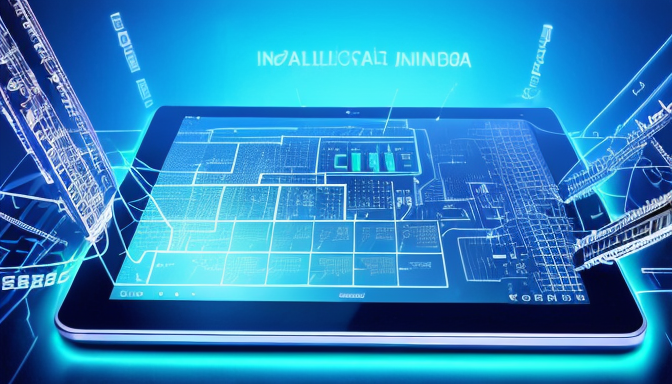Welcome to the future! With each passing day, artificial intelligence is making waves that are reshaping our world in ways we never thought possible. Imagine a world where machines not only assist us but also enhance our creativity and decision-making processes. Whether it’s in healthcare, finance, or entertainment, AI is the driving force behind groundbreaking advancements that promise to revolutionize our daily lives.
Let’s dive into the latest breakthroughs that are changing the game. From self-driving cars that navigate complex city streets to AI-driven virtual assistants that manage our schedules, the applications of this technology are limitless. For instance, in healthcare, AI algorithms are now capable of diagnosing diseases with accuracy that rivals seasoned professionals. This not only improves patient outcomes but also streamlines the entire healthcare system.
Moreover, AI tools are enhancing productivity across sectors. Consider how businesses are leveraging machine learning to analyze consumer data, predict trends, and tailor services that meet specific needs. This level of personalization creates a more engaging user experience, making customers feel valued and understood.
In summary, as we uncover the latest in AI breakthroughs, we are not just witnessing technological advancements; we are participating in a transformation that promises to enhance our lives in unimaginable ways. So, buckle up and get ready for a thrilling ride into the future!
Transformative Applications of AI
Artificial Intelligence (AI) is no longer just a concept from science fiction; it has become a game-changer in various industries. From healthcare to finance, AI’s transformative applications are reshaping how we work, live, and interact. Imagine a world where machines can analyze medical data faster than any human doctor, helping diagnose diseases with pinpoint accuracy. This is not a distant future; it’s happening right now!
In the healthcare sector, AI algorithms are being utilized to predict patient outcomes and personalize treatment plans. For instance, tools like IBM Watson are analyzing vast amounts of medical literature to assist doctors in making informed decisions. Meanwhile, in the finance industry, AI is enhancing fraud detection systems, allowing banks to identify suspicious transactions in real time, thereby protecting consumers and institutions alike.
Moreover, the retail sector is leveraging AI to enhance the customer experience. Think about personalized shopping recommendations that seem to read your mind! AI analyzes your purchase history and browsing behavior to suggest products you’ll love. This not only boosts sales but also creates a more enjoyable shopping experience.
As we dive deeper into the realm of AI, it’s clear that these advancements are not just about efficiency; they also open doors to new levels of creativity and innovation. The potential is limitless, and as we continue to explore these technologies, we are on the brink of a new era where AI will redefine the boundaries of what’s possible.

Ethical Considerations in AI Development
As we dive headfirst into the AI revolution, it’s crucial to pause and reflect on the ethical implications that accompany these technological marvels. Imagine a world where machines not only assist us but also make decisions that could impact our lives. Sounds futuristic, right? Yet, this is our reality today. With great power comes great responsibility, and the realm of artificial intelligence is no exception.
One of the most pressing concerns is bias. AI systems learn from data, and if that data reflects societal prejudices, the outcomes can perpetuate discrimination. For instance, if an AI is trained on biased hiring data, it might favor certain demographics over others. This isn’t just a theoretical issue; it’s happening now, with real-world consequences. Hence, ensuring fairness in AI algorithms is paramount.
Privacy is another critical aspect. As AI technologies become more integrated into our daily lives, the amount of personal data they collect is staggering. Are we comfortable with machines having access to our most private moments? This raises questions about consent and data ownership. We need to establish robust guidelines to protect individuals’ rights in this new landscape.
Lastly, accountability is key. When an AI makes a mistake, who is responsible? Is it the developer, the user, or the AI itself? It’s a tangled web that needs clear answers. As we forge ahead, we must prioritize ethical AI development to ensure these tools enhance our lives rather than complicate them. The future of AI is bright, but it’s up to us to ensure it shines ethically.
Frequently Asked Questions
- What are the key benefits of AI in various industries?
AI is transforming industries by enhancing efficiency, boosting productivity, and fostering innovation. For instance, in healthcare, AI algorithms assist in diagnosing diseases faster and more accurately, while in finance, they streamline processes and improve decision-making.
- How does AI impact user experience?
AI personalizes user experiences by analyzing data and predicting preferences. Think of it like having a personal shopper who knows your style; AI tailors recommendations, making interactions smoother and more enjoyable.
- What ethical concerns are associated with AI?
As AI grows, so do ethical concerns like bias in algorithms, privacy issues, and accountability. It’s crucial to develop AI responsibly, ensuring that it benefits society and doesn’t perpetuate existing inequalities.
- Can AI replace human jobs?
While AI can automate certain tasks, it’s more about augmentation than replacement. It frees up humans to focus on creative and strategic roles, much like how calculators didn’t replace mathematicians but made their work easier.